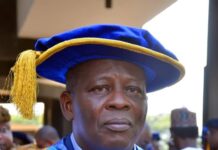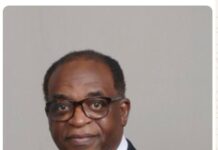 Over the past three weeks, there have been a lot of concerns expressed on the slow pace of the Buhari Administration to appoint political office holders. To some, the failure of the president to appoint even his key personal staff is an indication that he was not quite ready for the job. This group has already labelled him “Baba go slow”. Others have countered by saying that he is actually not running out of step with previous administrations. One argument I have read but not cross-checked claims that Obasanjo appointed his cabinet on 30th June 1999, Yar’Adua 26th July 2007 and Jonathan on 6th July 2011. The idea here is that relative to the others, Buhari is not running far behind. Of course part of the problem is that APC is not, or should not try to be like the PDP. In any case, PDP administrations had to negotiate with and rely upon PDP governors in making appointments. My understanding is that the Buhari Administration has decided to move away from that culture and take autonomous decisions, even if such would rely on party input.
Over the past three weeks, there have been a lot of concerns expressed on the slow pace of the Buhari Administration to appoint political office holders. To some, the failure of the president to appoint even his key personal staff is an indication that he was not quite ready for the job. This group has already labelled him “Baba go slow”. Others have countered by saying that he is actually not running out of step with previous administrations. One argument I have read but not cross-checked claims that Obasanjo appointed his cabinet on 30th June 1999, Yar’Adua 26th July 2007 and Jonathan on 6th July 2011. The idea here is that relative to the others, Buhari is not running far behind. Of course part of the problem is that APC is not, or should not try to be like the PDP. In any case, PDP administrations had to negotiate with and rely upon PDP governors in making appointments. My understanding is that the Buhari Administration has decided to move away from that culture and take autonomous decisions, even if such would rely on party input.
Just before the inauguration, the APC Policy Directorate held a major conference in preparation to execute a strategy of “hitting the ground running” as soon as they takeover power. Following a presentation made on behalf of former British Prime Minister Tony Blair, the key advice was that major decisions, especially politically difficult decisions must be made immediately and quick results must be obtained by the end of the first hundred days in office. One example emphasized was that of Indonesia following the inauguration of Joko Widodo in October last year. One of the things Wododo did was to immediately slash Indonesia’s extremely costly and inefficient fuel subsidy regime. It was a very difficult thing to do and previous Indonesian regimes had tried and failed to do so. The idea is that by riding on the crest of newly acquired legitimacy and popularity, Wododo was able to do it before internal resistance and vested interest had an opportunity to organise resistance. The underlying argument is that all new regimes coming into power in a context of very high expectation start losing their popularity on assuming office even if for the sole reason that people’s expectations are unreasonably high.
Of course the Indonesian story is very similar to that of Nigeria and the conference, but also the Nigerian press was making a huge push for an immediate cancellation of fuel subsidy before resistance to such a move builds up. Indeed, I had the impression just by reading the press that the decision would be announced in the first week of the Buhari Administration. However, following the inauguration, things went quiet as the whole country waited for political appointments and policy announcements that never came. I can imagine the pain and anxiety of the thousands of people patiently waiting for their names to emerge as key players of the new Administration and nothing has happened. I would however not be too bothered about them but the key issue is an effective take-off of the Government.
As the anxiety grew, the Presidency through “informed sources” made it clear that it would not be stampeded into making appointments before it was ready. Attention was drawn to the length of the report of the Ahmed Joda led Transition Committee report, which had to be studied. In addition, suggestions for reducing the size of the cabinet had to be studied and decisions made about the appropriate size of government. These are reasonable arguments that most of us can understand and sympathise with. The question however is who is studying the documents and making the decisions. It is clear that the President himself would not process the materials; some other group has to do so and pass on advice to the President. The question of who therefore remains important.
As I understand it, the permanent secretaries and heads of departments and agencies are currently running the Government. We have had indications that part of what President Buhari is doing is extracting information from them on the sordid mega corruption of the Jonathan Administration. This looks like a smart move. On reflection however, the administrative cadre in Nigeria is a technocracy with the highest skills the world over in operating the system of mega corruption. They were not simply carrying out the instructions of their political bosses. They were actively colluding with them and providing technical expertise on what to do. Yes, they will rat on their former political bosses but their accounts must be taken with a pinch of salt. I also wonder about the utility of the information they provide. In a regime of the rule of law, much of the information they provide would not be sufficient to prosecute offenders. My expectation was that as soon as initial information is obtained, judicial commissions of inquiry would be established on key sectors while key offenders would be prosecuted. In this regard, the priority of revamping the anti-corruption agencies for this task becomes an immediate imperative.
President Buhari is not naïve and no one believes he would really rely on top bureaucrats alone to get the information necessary to fight corruption. The expectation therefore would be that his party, the APC would be taking the lead in processing the report of the Joda Committee and the information coming in from the public service. There is little evidence supporting this expectation. In any case, the party has opted to devote itself almost entirely to a fratricidal struggle over the appointment of the leadership of the National Assembly. The party appears committed to rule itself out of its governance agenda for Nigeria and fight to the finish over the leadership of the Assembly. Its an extremely short sighted approach and indeed dangerous for the party’s future that it remains unwilling to let go of the National Assembly struggle and seek inroads into the take-off of the Buhari Administration.
If therefore the take-off is not and cannot be based of the bureaucracy and the party is set to marginalize itself from governance, who else is guiding and advising the President. As is well known, the President has had a coterie of committed believers around him for the past twelve years and they now have an opportunity to determine the shape and issues that would be at the core of the take-off of the Administration. This development could be quite dangerous, as it would lead to a process of alienation of the President from the party that brought him to power. Maintaining the coherence of the party and transforming it into a governing party is extremely important to the task of delivering on the party programme. Much more important, rebuilding belief in the Nigeria project, which was virtually dismantled by the Jonathan Administration, is key to national progress. To take the party baron’s eyes off the National Assembly positions, President Buhari would do himself and Nigeria well by immediately making his appointments. This must be done in a way that respects competence, our “Federal Character” principle and party interests. The new political appointees must be part of the process of probing the Jonathan Administration and the party programme can only be implemented if the party leaders are part of the governance system from the beginning.



